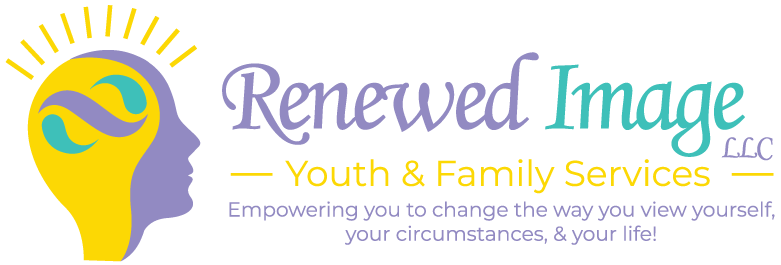Mental health disorders affect millions of individuals worldwide, encompassing a broad spectrum of conditions that impact thoughts, emotions, and behaviors. While these disorders vary widely in their symptoms and severity, they share the common characteristic of interfering with daily functioning and overall well-being. In this article, we delve into the intricacies of mental health disorders, exploring their types, methods of diagnosis, and available treatment options.
Types of Mental Health Disorders:
Anxiety Disorders: Anxiety disorders involve excessive worry, fear, or apprehension, leading to persistent feelings of distress. Common types include generalized anxiety disorder (GAD), panic disorder, social anxiety disorder, and specific phobias.
Mood Disorders: Mood disorders are characterized by disturbances in mood, ranging from persistent sadness (depression) to episodes of elevated mood (mania or hypomania). Major depressive disorder (MDD), bipolar disorder, and cyclothymic disorder fall under this category.
Psychotic Disorders: Psychotic disorders cause a detachment from reality, often manifesting as hallucinations, delusions, and disorganized thinking. Schizophrenia is the most well-known psychotic disorder, but others include schizoaffective disorder and delusional disorder.
Personality Disorders: Personality disorders involve enduring patterns of behavior, cognition, and inner experience that deviate from cultural expectations and cause distress or impairment. Examples include borderline personality disorder (BPD), antisocial personality disorder (ASPD), and narcissistic personality disorder (NPD).
Eating Disorders: Eating disorders are characterized by abnormal eating habits and distorted attitudes toward food, body weight, and shape. Common eating disorders include anorexia nervosa, bulimia nervosa, and binge-eating disorder.
Substance Use Disorders: Substance use disorders occur when the recurrent use of alcohol or drugs leads to significant impairment or distress. These disorders encompass alcohol use disorder, opioid use disorder, and stimulant use disorder, among others.
Neurodevelopmental Disorders: Neurodevelopmental disorders manifest early in childhood and involve impairments in brain function and development. Examples include attention-deficit/hyperactivity disorder (ADHD), autism spectrum disorder (ASD), and intellectual disability.
Trauma- and Stressor-Related Disorders: These disorders arise from exposure to traumatic or stressful events and include conditions such as post-traumatic stress disorder (PTSD), acute stress disorder, and adjustment disorders.
Diagnosis of Mental Health Disorders:
Accurate diagnosis of mental health disorders is crucial for effective treatment. Mental health professionals typically employ a combination of techniques, including:
Clinical Interviews: Mental health professionals conduct thorough interviews to assess symptoms, medical history, and psychosocial factors contributing to the individual’s condition.
Psychological Testing: Psychological tests and assessments help evaluate cognitive functioning, personality traits, and emotional states, aiding in differential diagnosis and treatment planning.
Diagnostic Criteria: Mental health disorders are diagnosed based on specific criteria outlined in diagnostic manuals such as the Diagnostic and Statistical Manual of Mental Disorders (DSM) or the International Classification of Diseases (ICD).
Medical Evaluation: Medical evaluations help rule out any underlying medical conditions that may mimic or exacerbate mental health symptoms.
Collateral Information: Obtaining information from family members, caregivers, or other relevant sources can provide valuable insights into the individual’s functioning and history.
Treatment of Mental Health Disorders:
Treatment approaches for mental health disorders vary depending on the type and severity of the condition. Common interventions include:
Psychotherapy: Psychotherapy, or mindset coaching, involves working with a trained therapist to explore thoughts, emotions, and behaviors and develop coping strategies. Cognitive-behavioral therapy (CBT), dialectical behavior therapy (DBT), and interpersonal therapy are among the many therapeutic modalities used.
Medication: Psychiatric medications such as antidepressants, antipsychotics, mood stabilizers, and anxiolytics may be prescribed to alleviate symptoms and stabilize mood.
Hospitalization: In severe cases where safety is a concern or symptoms are acutely distressing, hospitalization in a psychiatric facility may be necessary for stabilization and intensive treatment.
Support Groups: Participating in support groups or peer-led programs can provide individuals with mental health disorders a sense of belonging, validation, and mutual support.
Lifestyle Modifications: Adopting healthy lifestyle habits such as regular exercise, balanced nutrition, adequate sleep, and stress management techniques can complement other treatment modalities and promote overall well-being.
Integrated Treatment: Integrated treatment approaches, which combine medication, psychotherapy, and psychosocial interventions, offer a holistic approach to addressing the complex needs of individuals with mental health disorders.
In conclusion,
mental health disorders are diverse and multifaceted conditions that significantly impact individuals’ lives. Through accurate diagnosis and comprehensive treatment, individuals can manage symptoms, improve functioning, and lead fulfilling lives. However, destigmatizing mental illness, promoting early intervention, and expanding access to mental health services are essential steps toward ensuring optimal outcomes for all individuals affected by these disorders.


